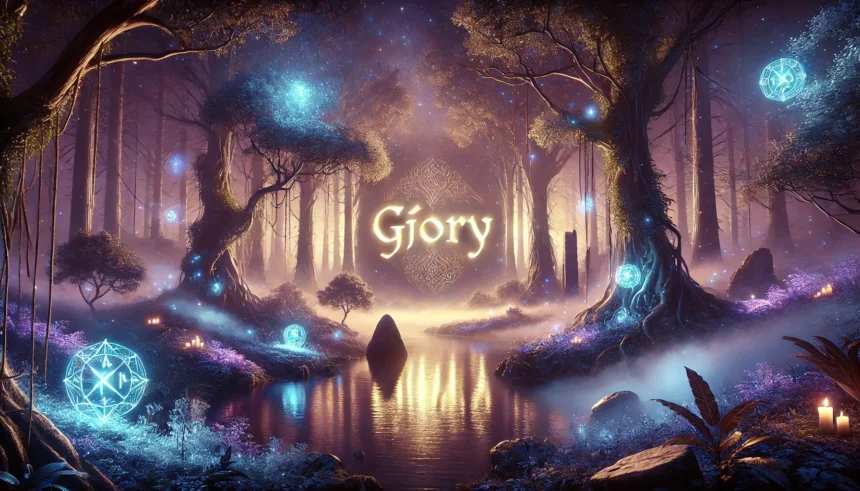In today’s interconnected world, new ideas and terms often emerge to reflect the complexities of a multicultural and global society. One such concept is Gñory. Although still in its infancy, Gño.ry is steadily gaining attention for its relevance in discussions spanning diplomacy, activism, and cultural exchange. This article delves into the meaning, significance, and potential of Gño.ry as a term that resonates with our evolving world.
What is Gñory?
At its core, Gñory represents the spirit of global interconnectedness and the acknowledgment of shared human experiences. While the precise origins of the term remain ambiguous, it is often associated with the blending of cultures, ideas, and perspectives to foster mutual understanding. Though not yet an internationally recognized term, Gño.ry has started appearing in conversations among diplomats, activists, and thought leaders who are shaping the future of global collaboration.
Origins and Cultural Context
The roots of Gñory are believed to lie in linguistic and philosophical traditions that emphasize unity and diversity. Some speculate it may have evolved from lesser-known dialects or cultural practices that celebrate inclusivity. Others see it as a modern construct, born from the need to articulate a growing movement toward collective action and shared responsibility in an interconnected world.
Why Gñory is Gaining Momentum
The rise of Gñory reflects a broader societal shift toward embracing diversity and fostering collaboration across borders. Its appeal lies in its ability to encapsulate complex ideas in a single term. Activists and diplomats have found it particularly useful for addressing global challenges such as climate change, human rights, and economic inequality. By serving as a unifying concept, Gño.ry encourages dialogue and cooperation in a world that often feels divided.
Gñory as a Symbol of Global Change
In many ways, Gñory symbolizes the transition from isolationist ideologies to a more inclusive global perspective. It highlights the importance of cultural exchange, mutual respect, and the blending of ideas to solve pressing global issues. Whether in international policies or grassroots movements, Gño.ry acts as a reminder that progress often comes from working together.
Who is Talking About Gñory?
Although still a niche term, Gño.ry has attracted the attention of key figures in various fields. Diplomats have used it to describe the spirit of international negotiations, while activists invoke it when rallying for collective action. Academic circles have also begun exploring the theoretical implications of Gño.ry, particularly in sociology and cultural studies. Discussions often take place at international conferences, on social media platforms, and in think tank publications.
Real-Life Applications of Gñory
The concept of Gñory has practical implications in fostering collaboration and understanding. For instance:
- Diplomacy: Encouraging nations to prioritize global unity over self-interest.
- Activism: Inspiring campaigns that address universal challenges like climate change and human rights.
- Education: Promoting cross-cultural exchange programs and global citizenship curricula.
Organizations that embrace Gño.ry often find themselves better equipped to navigate the complexities of a multicultural world.
Challenges and Criticism
Despite its promise, Gñory is not without its challenges. Critics argue that the term’s vague definition makes it susceptible to misinterpretation or misuse. Additionally, achieving widespread recognition and acceptance requires significant effort from educators, policymakers, and thought leaders. However, these challenges also present opportunities for refinement and broader engagement.
The Future of Gñory
As the world continues to evolve, so too will the concept of Gño.ry. Its potential lies in its ability to inspire unity and collaboration on a global scale. By fostering dialogue and understanding, Gño.ry could become a cornerstone of 21st-century thought, shaping how societies address shared challenges and embrace opportunities for growth.
Conclusion
In summary, Gñory is more than just a term—it is a reflection of our collective aspirations for a more inclusive and interconnected world. As it gains traction among diplomats, activists, and thought leaders, it holds the potential to influence global policies, social movements, and cultural exchanges. By embracing the spirit of Gño.ry, individuals and organizations can contribute to a brighter and more collaborative future.
Frequently Asked Questions (FAQs)
What is Gñory?
Gñory is an emerging concept that represents global interconnectedness and the blending of cultures, ideas, and perspectives. It highlights the importance of mutual understanding in addressing global challenges.
Why is Gñory important?
Gño.ry is important because it promotes collaboration and inclusivity, encouraging nations, organizations, and individuals to work together to tackle issues like climate change, human rights, and economic inequality.
Who uses the term Gñory?
The term Gño.ry is gaining traction among diplomats, activists, academics, and thought leaders who engage in global discussions about diversity, unity, and collective progress.
What are some real-life applications of Gñory?
Gño.ry is applied in diplomacy to foster international cooperation, in activism to inspire global campaigns, and in education to encourage cross-cultural understanding through exchange programs and curricula.
Is Gñory widely recognized?
While Gño.ry is not yet an internationally recognized term, its relevance is growing, with discussions spanning diverse platforms like international conferences, social media, and academic forums.
Recommended Article:
How to Master commencement ceremony guest ettiquete welcome univesrity
Purdue Global: Generational Differences in the Workplace
Understanding PennWestern ABA Program Tuition: Your Comprehensive Guide






